Drastic new measures aimed at preventing the spread of coronavirus were announced by Taoiseach Leo Varadkar on Friday night.
These will affect farmers, their families and agribusinesses.
They are essential to slow the spread of COVID-19, flatten the curve and allow the national health system treat sick people.
Here are the latest updates for farmers:
Machinery dealers to operate in a limited way - FTMTA
FTMTA boss Gary Ryan has laid out how the new coronavirus lockdown will affect machinery dealerships.
They will be no longer open to the public but can operate in a limited way in relation to parts and service.
He told Peter Thomas Keaveney all about the changes and what dealerships must do in this article.
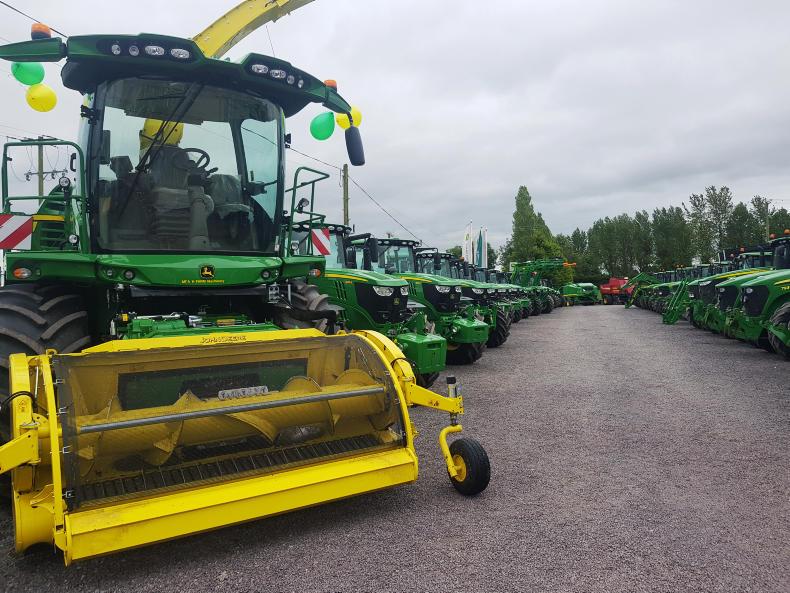
What should I get for my cattle when selling privately?
The sale of cattle will be minimal in the coming weeks. However, where farmers do sell direct to another farmer, we look at what prices they should be getting for them.
Probably the fairest way to sell is to weigh and sell by weight. Once both parties agree that the scales is accurate and agree a price, it gives great peace of mind to both sides.
Judging the weight of cattle is difficult to do accurately unless you have a keen eye for it.
Read more on this from Nathan Tuffy here.
Dairy industry reacts to essential workers list
Dairy Industry Ireland has welcomed the publication of the Government’s essential service employee list saying that it gives flexibility for Irish dairy and specialised nutrition processing to continue unhindered during this unprecedented public health emergency.
Director of Dairy Industry Ireland Conor Mulvihill said: "We are happy that Government listened to us. All reasonable requests have been achieved.
“There was full recognition our role in delivering dairy and nutrition products here in Ireland and in international supply chains.”
However, Mulvihill warned that there remained significant challenges ahead for the industry and suppliers.
You can read Mulvihill's full comments here.
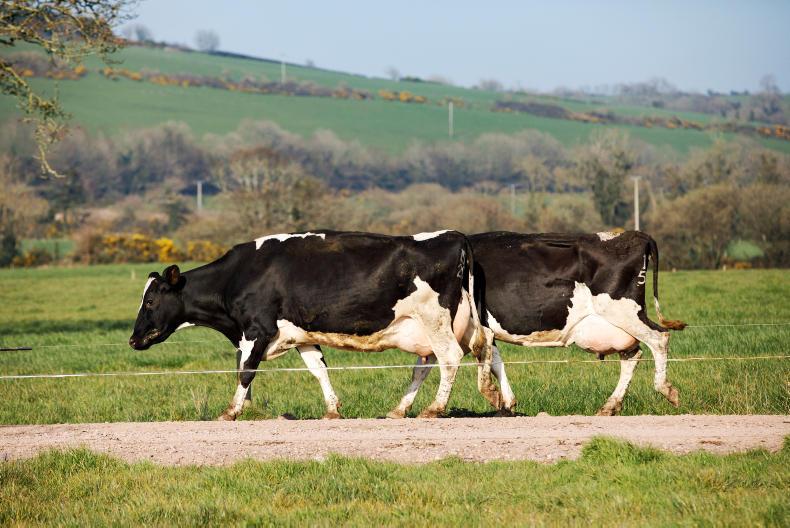
Essential workers in farming and food production revealed
Farmers, farm labourers, farm relief service workers, and others involved directly or indirectly in crop and animal production have been classed as essential workers by the Government.
All of those involved in “related activities” to farming, which includes veterinary services, are also classed as essential.
The Government defined essential workers in farming on Saturday evening and farmers are also advised to carry one form of identification with you at all times.
You can read the full story on essential workers in farming here.
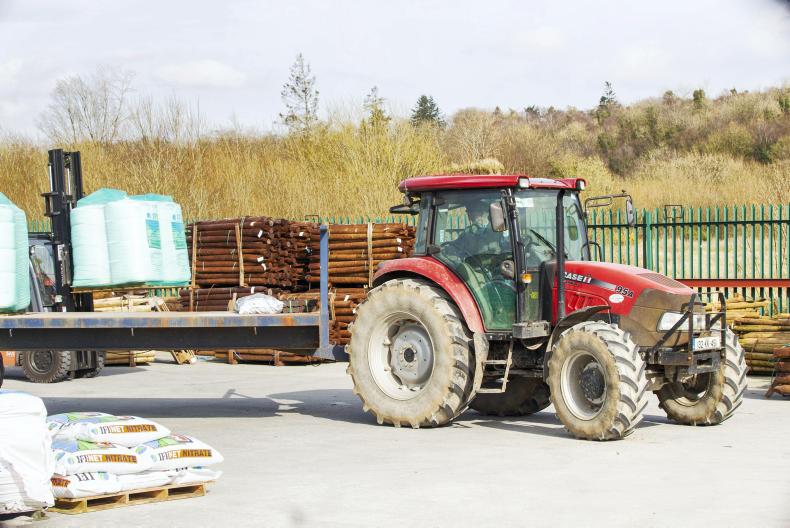
Glanbia and Dairygold have implemented a call and collect system which is likely to become the norm.
Tullamore Farm: coping through coronavirus without student help
As the the coronavirus crisis has unfolded, Tullamore Farm staff have been trying their best to minimise the potential spread of the virus and ensure the safety of those working on the farm.
Hand washing, correct coughing and sneezing etiquette, and keeping a physical distance between each other have become the norm on the farm.
Over the past three years the farm has availed of student help at calving and lambing time. This year the farm saw Seán Flynn from Teagasc, Gurteen, and Emma Dooley from UCD take up placement in Tullamore.
Unfortunately, under advice both have had to cut their placement short as of Friday night’s announcement.
Read the full story from Adam Woods here.
Farm contractors can continue to work
Farm contractors can continue to work on farms, the Department of Agriculture has confirmed to the Association of Farm and Forestry Contractors in Ireland (FCI).
The FCI has asked contractors to follow the HSE advice on personal safety with more updates to come as things evolve.
Read the full story on contractors here.
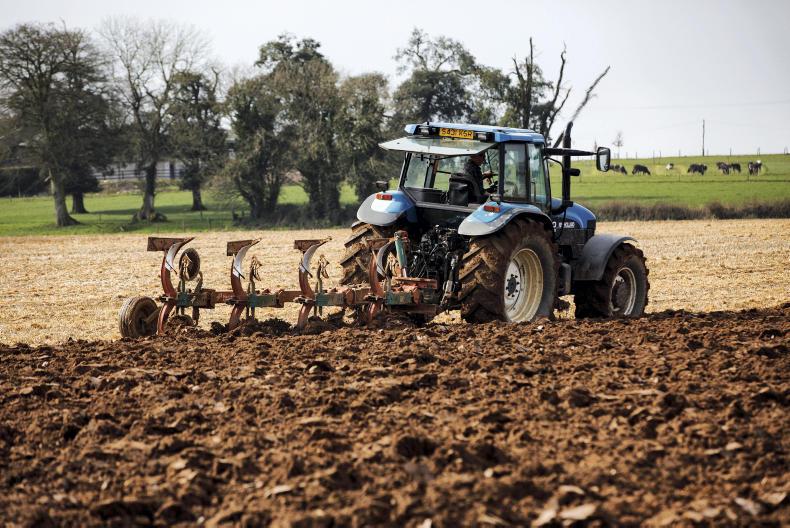
No need to panic buy food - Taoiseach
An Taoiseach Leo Varadkar has said there is no need for people to stockpile food as a result of the new restrictions announced on Friday night.
“No need to do all shopping or stockpile this morning. Food stores and takeaways staying open in the emergency,” he said.
He added that you can go beyond the 2km radius to buy food and medicines.
You can read the full story here.
Co-ops and agri-stores to remain open
Agri stores and veterinary supply shops can remain open in the new coronavirus lockdown, it has been confirmed.
The new list of essential retail outlets, published late on Friday night, as Caitríona Morrissey reports in this article, includes shops selling veterinary supplies, animal feed and animal bedding.
However, some shops that combine home goods, hardware and farming supplies are restricting what they are selling.
In Dairygold, sales are being strictly limited to essentials such as farm hardware, farm supplies, pet food, and animal feed.

Glanbia and Dairygold have implemented a call and collect system which is likely to become the norm.
Glanbia has said its call and collect services will continue to operate and asked farmers to respect the branch protocols and support its hardworking staff.
Centenary Thurles has listed its retail sales as being restricted to animal feed and medicines, fertiliser, pet food, animal bedding, minerals, diesel, fuel, disinfectants, plumbing, pest control, cleaning products, salt, protective clothing and crop packaging. It will be setting up an emergency delivery service from 30 March for other agri and hardware products.
The call and collect systems already in place in some vets and agri stores are likely to become the norm for all.
What is cocooning and who does it apply to?
Cocooning is a measure to protect those over 70 years old or those extremely medically vulnerable by minimising interaction between them and others.
It means that these people should not leave their homes and even within their homes should minimise all non-essential contact with other members of their household.
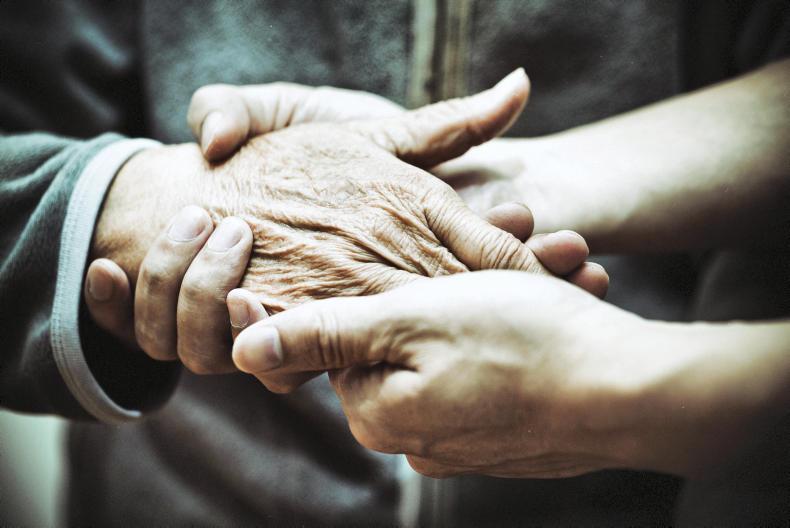
You can read the full Government advice in this story by Amy Forde.
And if you’re worried about cocooning, psychotherapist Enda Murphy explains more about it and how you can make the best of it in this Irish Country Living article.
Farm Tech Talks: free Irish Farmers Journal specialist advice
The Irish Farmers Journal team has been working remotely for two weeks now and is committed to helping farmers with their technical queries and farm management challenges.
You can stay up to date with them via a new video-based tech talk, which is available to watch for free.
The latest episode, supported by Ornua, FBD and MSD, features suckler and beef editor Adam Woods, our sheep and schemes editor Darren Carty and our dairy editor Aidan Brennan.
Watch it for free now.
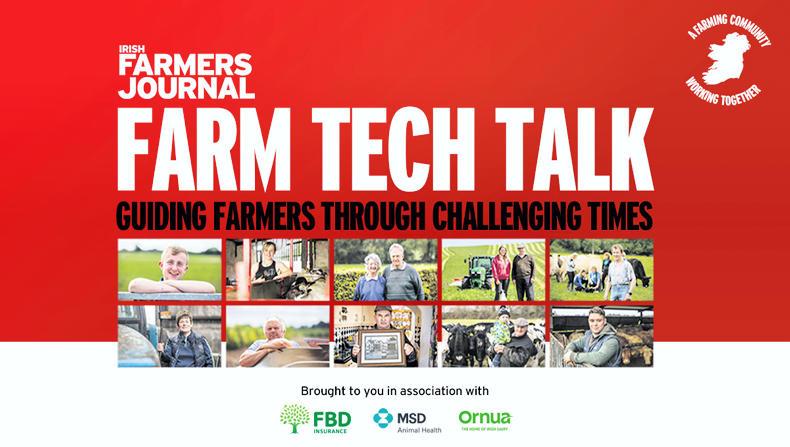
Ag college students work placement changes
Teagasc has suspended work placements for its level six students as a result of new COVID-19 restrictions announced on Friday 27 March.
Teagasc students who are on overseas placement had previously been advised to return home.
WIT students abroad were advised to return home.
Some UCD students are helping in the fight against coronavirus by working in the Enfer laboratories in Co Kildare.
You can read the full update on college students by Odile Evans here.
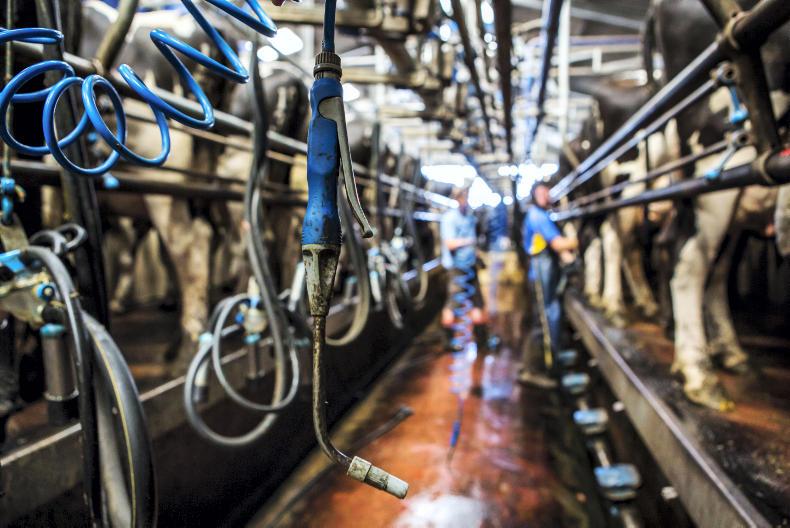
Grass & Muck 2020 postponed
FTMTA Grass & Muck 2020 has been postponed from mid-May to a date in the second half of August, the Farm Tractor and Machinery Trade Association (FTMTA) confirmed on Friday.
Read the full story by Peter Thomas Keaveney here.
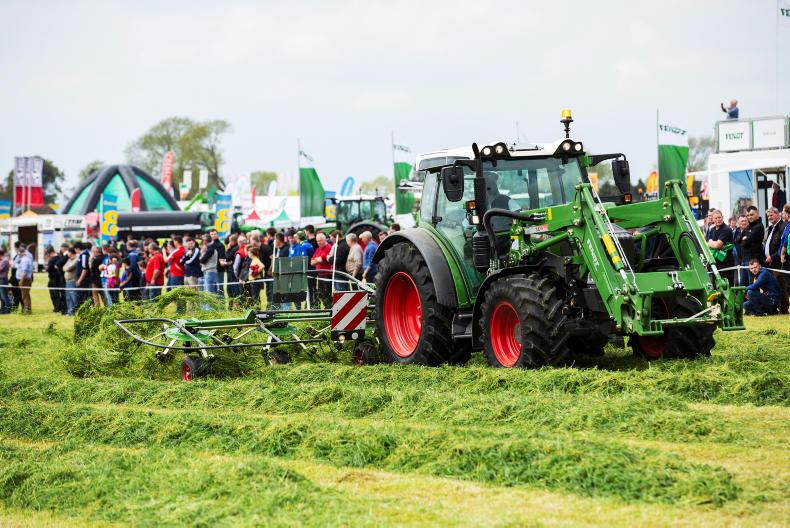
Read more
Coronavirus: farming and food production exempt from lockdown
Drastic new measures aimed at preventing the spread of coronavirus were announced by Taoiseach Leo Varadkar on Friday night.
These will affect farmers, their families and agribusinesses.
They are essential to slow the spread of COVID-19, flatten the curve and allow the national health system treat sick people.
Here are the latest updates for farmers:
Machinery dealers to operate in a limited way - FTMTA
FTMTA boss Gary Ryan has laid out how the new coronavirus lockdown will affect machinery dealerships.
They will be no longer open to the public but can operate in a limited way in relation to parts and service.
He told Peter Thomas Keaveney all about the changes and what dealerships must do in this article.

What should I get for my cattle when selling privately?
The sale of cattle will be minimal in the coming weeks. However, where farmers do sell direct to another farmer, we look at what prices they should be getting for them.
Probably the fairest way to sell is to weigh and sell by weight. Once both parties agree that the scales is accurate and agree a price, it gives great peace of mind to both sides.
Judging the weight of cattle is difficult to do accurately unless you have a keen eye for it.
Read more on this from Nathan Tuffy here.
Dairy industry reacts to essential workers list
Dairy Industry Ireland has welcomed the publication of the Government’s essential service employee list saying that it gives flexibility for Irish dairy and specialised nutrition processing to continue unhindered during this unprecedented public health emergency.
Director of Dairy Industry Ireland Conor Mulvihill said: "We are happy that Government listened to us. All reasonable requests have been achieved.
“There was full recognition our role in delivering dairy and nutrition products here in Ireland and in international supply chains.”
However, Mulvihill warned that there remained significant challenges ahead for the industry and suppliers.
You can read Mulvihill's full comments here.

Essential workers in farming and food production revealed
Farmers, farm labourers, farm relief service workers, and others involved directly or indirectly in crop and animal production have been classed as essential workers by the Government.
All of those involved in “related activities” to farming, which includes veterinary services, are also classed as essential.
The Government defined essential workers in farming on Saturday evening and farmers are also advised to carry one form of identification with you at all times.
You can read the full story on essential workers in farming here.

Glanbia and Dairygold have implemented a call and collect system which is likely to become the norm.
Tullamore Farm: coping through coronavirus without student help
As the the coronavirus crisis has unfolded, Tullamore Farm staff have been trying their best to minimise the potential spread of the virus and ensure the safety of those working on the farm.
Hand washing, correct coughing and sneezing etiquette, and keeping a physical distance between each other have become the norm on the farm.
Over the past three years the farm has availed of student help at calving and lambing time. This year the farm saw Seán Flynn from Teagasc, Gurteen, and Emma Dooley from UCD take up placement in Tullamore.
Unfortunately, under advice both have had to cut their placement short as of Friday night’s announcement.
Read the full story from Adam Woods here.
Farm contractors can continue to work
Farm contractors can continue to work on farms, the Department of Agriculture has confirmed to the Association of Farm and Forestry Contractors in Ireland (FCI).
The FCI has asked contractors to follow the HSE advice on personal safety with more updates to come as things evolve.
Read the full story on contractors here.

No need to panic buy food - Taoiseach
An Taoiseach Leo Varadkar has said there is no need for people to stockpile food as a result of the new restrictions announced on Friday night.
“No need to do all shopping or stockpile this morning. Food stores and takeaways staying open in the emergency,” he said.
He added that you can go beyond the 2km radius to buy food and medicines.
You can read the full story here.
Co-ops and agri-stores to remain open
Agri stores and veterinary supply shops can remain open in the new coronavirus lockdown, it has been confirmed.
The new list of essential retail outlets, published late on Friday night, as Caitríona Morrissey reports in this article, includes shops selling veterinary supplies, animal feed and animal bedding.
However, some shops that combine home goods, hardware and farming supplies are restricting what they are selling.
In Dairygold, sales are being strictly limited to essentials such as farm hardware, farm supplies, pet food, and animal feed.

Glanbia and Dairygold have implemented a call and collect system which is likely to become the norm.
Glanbia has said its call and collect services will continue to operate and asked farmers to respect the branch protocols and support its hardworking staff.
Centenary Thurles has listed its retail sales as being restricted to animal feed and medicines, fertiliser, pet food, animal bedding, minerals, diesel, fuel, disinfectants, plumbing, pest control, cleaning products, salt, protective clothing and crop packaging. It will be setting up an emergency delivery service from 30 March for other agri and hardware products.
The call and collect systems already in place in some vets and agri stores are likely to become the norm for all.
What is cocooning and who does it apply to?
Cocooning is a measure to protect those over 70 years old or those extremely medically vulnerable by minimising interaction between them and others.
It means that these people should not leave their homes and even within their homes should minimise all non-essential contact with other members of their household.

You can read the full Government advice in this story by Amy Forde.
And if you’re worried about cocooning, psychotherapist Enda Murphy explains more about it and how you can make the best of it in this Irish Country Living article.
Farm Tech Talks: free Irish Farmers Journal specialist advice
The Irish Farmers Journal team has been working remotely for two weeks now and is committed to helping farmers with their technical queries and farm management challenges.
You can stay up to date with them via a new video-based tech talk, which is available to watch for free.
The latest episode, supported by Ornua, FBD and MSD, features suckler and beef editor Adam Woods, our sheep and schemes editor Darren Carty and our dairy editor Aidan Brennan.
Watch it for free now.

Ag college students work placement changes
Teagasc has suspended work placements for its level six students as a result of new COVID-19 restrictions announced on Friday 27 March.
Teagasc students who are on overseas placement had previously been advised to return home.
WIT students abroad were advised to return home.
Some UCD students are helping in the fight against coronavirus by working in the Enfer laboratories in Co Kildare.
You can read the full update on college students by Odile Evans here.

Grass & Muck 2020 postponed
FTMTA Grass & Muck 2020 has been postponed from mid-May to a date in the second half of August, the Farm Tractor and Machinery Trade Association (FTMTA) confirmed on Friday.
Read the full story by Peter Thomas Keaveney here.

Read more
Coronavirus: farming and food production exempt from lockdown














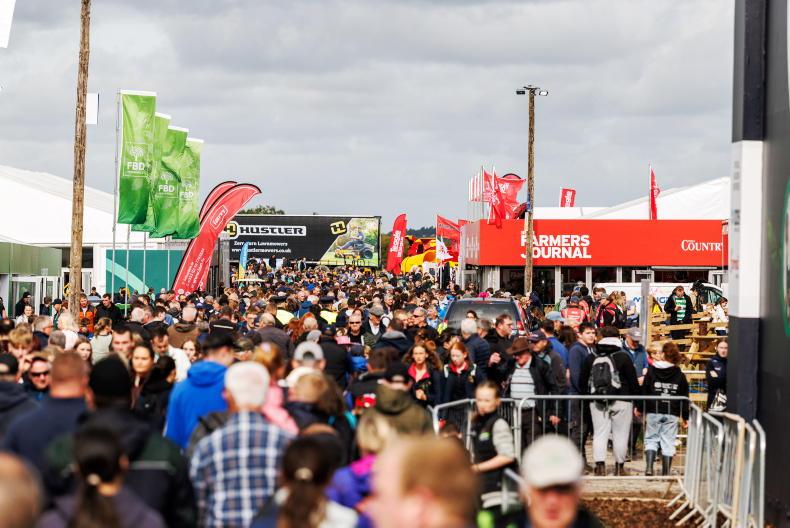
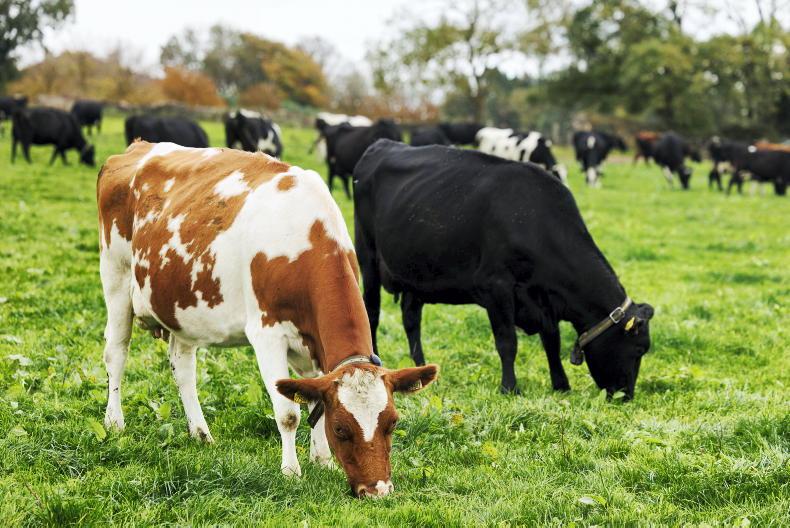
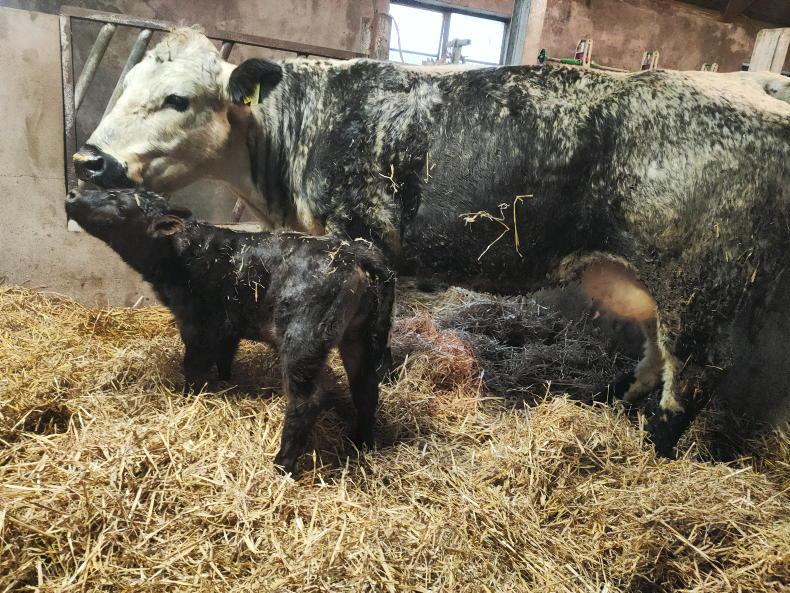
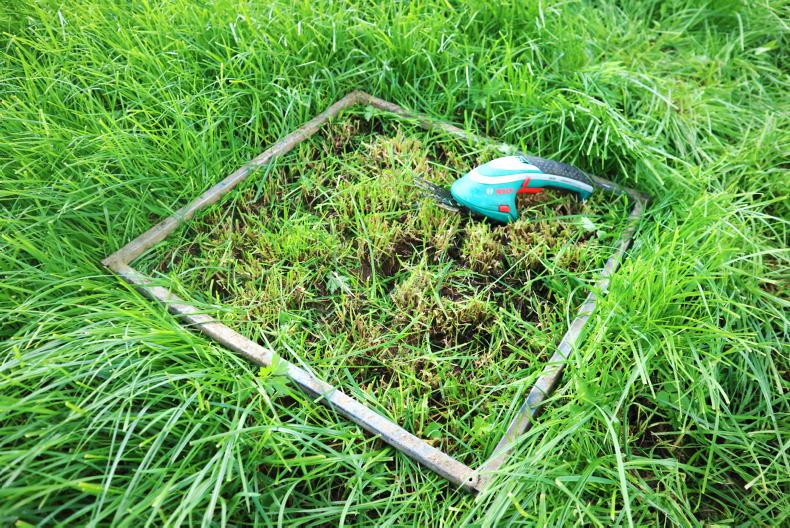
SHARING OPTIONS